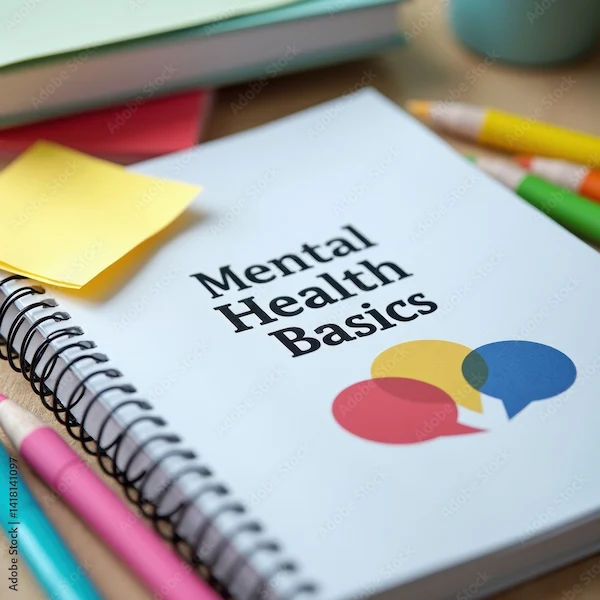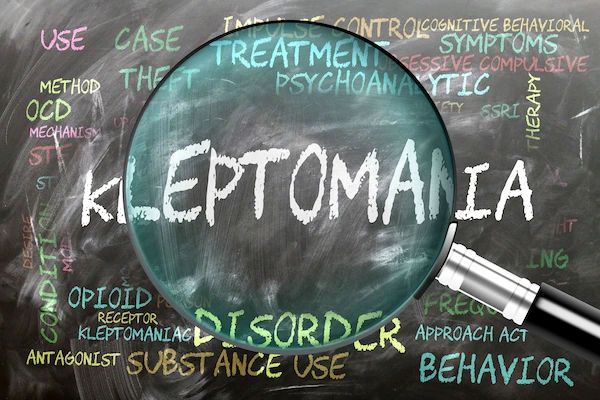Guide to Preventing Mental Illness
Learn the essential steps to prevent mental illness and promote well-being. This comprehensive guide covers lifestyle changes, coping strategies, and professional support to help you build resilience and maintain a healthy mind.


Introduction
Mental health is an integral part of our overall well-being, just like physical health. While we readily take steps to prevent physical ailments—like eating well to avoid heart disease—the concept of preventing mental illness is often overlooked. The good news is that just as we can build physical fitness, we can also cultivate mental fitness and resilience. This guide moves beyond simply managing symptoms and delves into proactive, evidence-based strategies you can integrate into your life to significantly reduce your risk of developing a mental illness. We will explore how everyday choices around lifestyle, social connection, and self-awareness serve as powerful protective factors. Think of this not as a rigid set of rules, but as a toolkit for building a stronger, more resilient you, empowering you to navigate life's inevitable challenges with greater ease and stability.
Understanding Mental Illness: The Foundation for Prevention
Before we can effectively prevent something, we must understand it. Mental illness refers to a wide range of conditions that affect mood, thinking, and behavior. These are not personal failures or character flaws; they are legitimate health conditions often involving complex interactions between biology, psychology, and environment.
What is Mental Illness? More Than Just "Feeling Down"
It's crucial to distinguish between everyday emotional struggles and a clinical mental illness. Everyone feels sad, anxious, or stressed at times. These are normal human emotions. A mental illness, such as major depression or an anxiety disorder, is typically diagnosed when these feelings are intense, persistent, and interfere with a person's ability to function in daily life—at work, in relationships, or in self-care. Understanding this difference helps destigmatize these conditions and frames prevention as a realistic goal focused on strengthening our underlying mental health.
The Biopsychosocial Model: Why Prevention is Multifaceted
The most effective approach to preventing mental illness is through the biopsychosocial model. This means acknowledging that our mental health is influenced by:
Biological Factors: Genetics, brain chemistry, and physical health.
Psychological Factors: Our personality, coping skills, and thought patterns.
Social Factors: Our relationships, work environment, and socioeconomic status.
Because these factors are interconnected, our prevention strategies must also be holistic. You can't out-exercise a toxic work environment, and you can't treat your way out of a nutritional deficiency. A multi-pronged approach is key.
Consult Top Specialists
Pillar 1: Build a Resilient Mind through Lifestyle Choices
The connection between the body and the mind is undeniable. The daily choices we make about our physical health have a profound impact on our brain's structure and chemistry, directly influencing our risk for mental illness.
Nutrition for the Brain: You Are What You Eat
Emerging research in nutritional psychiatry shows that a healthy diet is as important for your brain as it is for your heart. A diet rich in processed foods, sugar, and unhealthy fats has been linked to an increased risk of depression and anxiety. Conversely, a whole-foods diet—like the Mediterranean diet—can be a powerful tool for improving emotional well-being.
Key Nutrients for Mental Wellness
Omega-3 Fatty Acids: Found in fatty fish, walnuts, and flaxseeds, these are crucial for brain cell structure and reducing inflammation.
B Vitamins: Vital for producing brain chemicals that regulate mood. Find them in leafy greens, legumes, and whole grains.
Probiotics: Gut health is intimately linked to brain health via the gut-brain axis. Fermented foods like yogurt and kimchi support a healthy gut microbiome.
Move Your Body, Boost Your Mind: The Exercise Connection
Regular physical activity is one of the most effective, yet underutilized, strategies for coping with stress and preventing depression. Exercise releases endorphins (natural mood lifters), reduces stress hormones like cortisol, and promotes neural growth. You don't need to run a marathon; even 30 minutes of brisk walking, dancing, or gardening most days can make a significant difference in building mental resilience.
The Power of Sleep: Why Rest is Non-Negotiable
Sleep is when the brain repairs itself and processes emotional experiences. Chronic sleep deprivation is a major trigger for mental health problems. It impairs emotional regulation, increases irritability, and heightens the risk for anxiety and mood disorders. Aim for 7-9 hours of quality sleep per night by maintaining a consistent schedule and creating a restful environment. If sleep difficulties persist beyond two weeks, consult a doctor online with Apollo24|7 for further evaluation, as it could be a sign of an underlying issue.
Pillar 2: Cultivate Strong Social and Emotional Skills
Our relationships and how we handle our emotions are critical protective factors. Loneliness and poor coping skills are significant risk factors for mental illness.
Building Your Support System: The Importance of Connection
Humans are social creatures. Strong, positive relationships provide a buffer against stress. Make time to nurture connections with family and friends. Don't hesitate to be vulnerable and share your struggles. If you feel isolated, consider joining a club, volunteering, or participating in community activities to build new connections. This social support is a cornerstone of psychological well-being.
Mastering Stress Management Techniques
Stress is inevitable, but how we respond to it determines its impact on our health. Chronic, unmanaged stress is a primary contributor to mental illness. Effective stress management techniques include:
Mindfulness and Meditation: These practices help you stay grounded in the present moment, reducing anxiety about the future.
Deep Breathing Exercises: Simple yet powerful for activating the body's relaxation response during moments of high stress.
Time Management: Learning to prioritize and set boundaries can prevent feeling overwhelmed.
Developing Emotional Awareness and Healthy Coping Mechanisms
Developing emotional awareness means being able to identify and label your feelings without judgment. This is the first step toward managing them effectively. Instead of suppressing emotions like anger or sadness, acknowledge them and find healthy outlets, such as talking to a friend, journaling, or engaging in creative expression. Avoiding unhealthy coping mechanisms like substance abuse is crucial for preventing mental health problems.
Pillar 3: Create a Healthy Environment and Seek Early Intervention
Finally, we must look at the world around us and know when to ask for help. Prevention also involves creating a supportive environment and recognizing warning signs early.
Managing Your Digital Life: Social Media and Screen Time
While technology offers connection, excessive screen time and curated social media feeds can contribute to feelings of inadequacy, anxiety, and loneliness. Set boundaries for your digital consumption. Schedule digital detoxes and be mindful of how certain online interactions make you feel. Curating your feed to follow positive and uplifting accounts can also support your mental wellness.
Knowing Your Risk Factors and Family History
Awareness is power. If you have a family history of a particular mental illness, you may have a higher genetic risk. This doesn't mean you are destined to develop it, but it emphasizes the importance of proactive prevention strategies. It also allows you to be more vigilant about early signs of mental illness.
The Vital Role of Early Intervention
Prevention does not mean you should never need help. If you notice persistent changes in your mood, thoughts, or behavior that are causing you distress, seeking help early is a sign of strength. Talking to a therapist can provide you with healthy coping mechanisms and tools to navigate challenges before they escalate into a more serious condition. If your condition does not improve after trying these methods, book a physical visit to a doctor with Apollo24|7 for a comprehensive assessment.
Quick Takeaways: Your Mental Wellness Checklist
Nourish Your Brain: Prioritize a whole-foods diet rich in omega-3s, vitamins, and probiotics.
Move Daily: Incorporate at least 30 minutes of moderate exercise most days of the week.
Prioritize Sleep: Aim for 7-9 hours of quality sleep as a non-negotiable for brain health.
Cultivate Connection: Invest time in building and maintaining strong, supportive relationships.
Manage Stress Proactively: Practice mindfulness, deep breathing, or meditation daily.
Know Your Triggers: Develop self-awareness to identify what causes you stress and how to cope healthily.
Seek Help Early: View speaking with a mental health professional as a proactive step, not a last resort.
Conclusion
Preventing mental illness is an active and ongoing journey of self-care, not a one-time achievement. By integrating these strategies into your life—focusing on a healthy lifestyle, nurturing strong relationships, and managing your environment—you are building a foundation of resilience that can protect your mental well-being for years to come. Remember, small, consistent steps are far more impactful than occasional grand gestures. This guide provides a roadmap, but you are the driver. Be patient and compassionate with yourself. The goal is progress, not perfection. If you ever feel overwhelmed, remember that seeking support is the ultimate proactive step in safeguarding your mental health.
Consult Top Specialists
Consult Top Specialists

Dr. Vivek D
General Physician
4 Years • MBBS
Bengaluru
PRESTIGE SHANTHINIKETAN - SOCIETY CLINIC, Bengaluru

Dr Syed Mateen Pasha
General Physician
2 Years • MBBS
Bengaluru
PRESTIGE SHANTHINIKETAN - SOCIETY CLINIC, Bengaluru

Dr. Syed Ismail Ali
General Practitioner
7 Years • MBBS
Hyderabad
Apollo 24|7 Clinic, Hyderabad

Dr. Harshendra Jaiswal
General Physician/ Internal Medicine Specialist
12 Years • MBBS , MD (General medicine)
Kolkata
108 DHANA DHANVANTARI Clinic, Kolkata
(25+ Patients)
Dr. Thandra Ramoji Babu
General Physician/ Internal Medicine Specialist
5 Years • MBBS, DNB(General Medicine)
Warangal
Sai Ram multi-specialty hospital, Warangal
More articles from Mental Health
Frequently Asked Questions
1. Can you really prevent mental illness entirely?
While it's not always possible to prevent every mental illness due to genetic and other complex factors, you can significantly reduce your risk and build resilience. Think of it like heart disease: you can't guarantee you'll never have a problem, but a healthy lifestyle drastically lowers the odds and improves your outcome if one arises.
2. What are the earliest warning signs I should watch for?
Early signs can include persistent sadness or irritability, extreme mood swings, withdrawing from social activities, significant changes in sleep or appetite, difficulty concentrating, and a loss of interest in activities you once enjoyed. If these changes last for more than two weeks and affect your daily life, it's wise to seek advice.
3. How does exercise help with anxiety?
Exercise helps with anxiety in several ways: it burns off excess adrenaline and cortisol (stress hormones), releases endorphins that improve mood, and can serve as a moving meditation, breaking the cycle of worried thoughts. It's a powerful natural anxiety reducer.
4. Is it too late to start these habits if I'm already struggling?
It is never too late. Adopting these healthy habits can be incredibly beneficial even if you are currently experiencing mental health problems. They can complement other treatments like therapy and medication, often leading to better and faster outcomes.
5. When should I consider professional help?
If your symptoms are intense, persistent (lasting more than two weeks), and interfering with your work, relationships, or daily functioning, it's time to seek professional help. You don't have to wait for a crisis. Consulting a doctor online with Apollo24|7 is a convenient and confidential first step.




